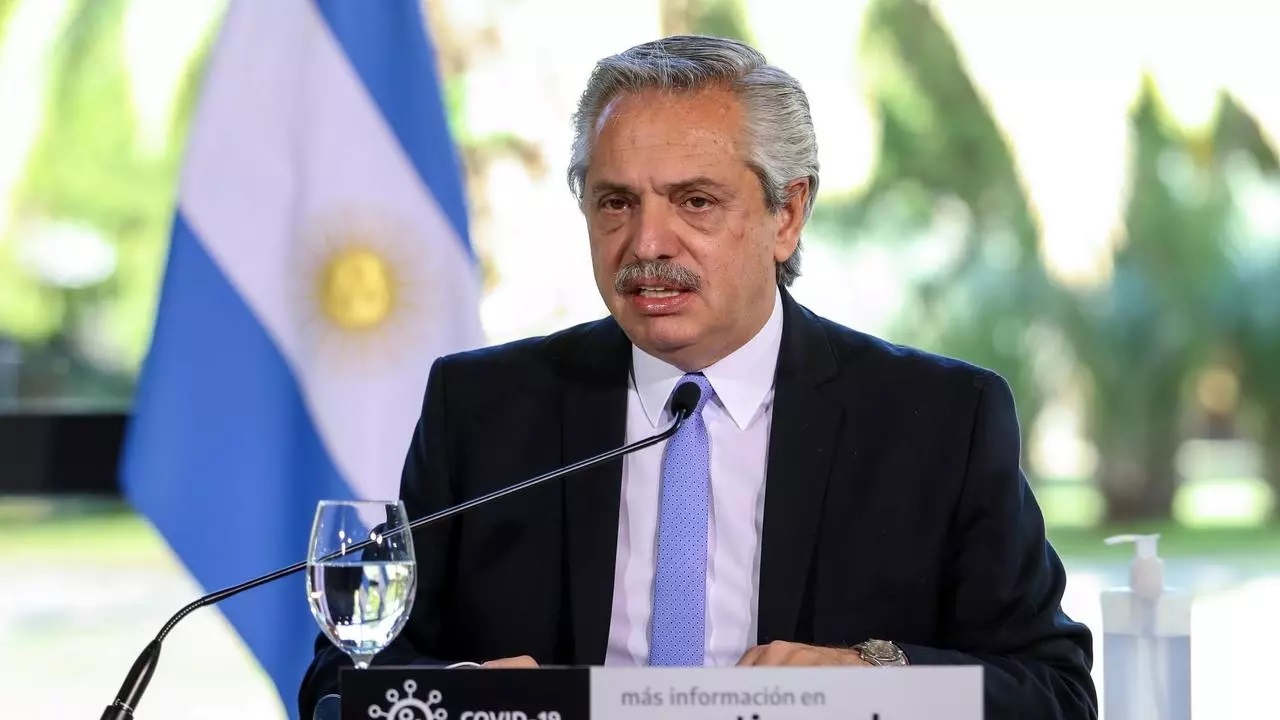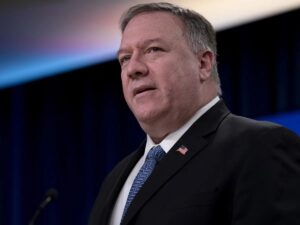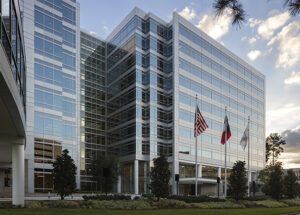
(FT.com, 19.Jul.2020) —Alberto Fernández, Argentina’s president, has made an impassioned appeal for the world to accept that — with an economy devastated by coronavirus — he cannot budge from his final offer to restructure $65bn of foreign debt.
Weighed down by $323bn of borrowing, Argentina was already in a deep recession before the pandemic and in May the South American country defaulted for the ninth time in its history — although no creditors have attempted to sue it yet.
Mr Fernández told the Financial Times that “anything more would put our ability to [pay our debts] at risk, and I don’t want to swindle anybody”, as he dismissed bondholders’ demands for additional sweeteners before an August 4 deadline to accept one of the emerging market world’s biggest restructurings.
In his first interview with the foreign press in Argentina since taking office in December, Mr Fernández, a pragmatic leftist, said a swift resolution of the debt crisis was essential for the recovery of one of the top global grains exporters — a role that would be even more critical after the pandemic.
The Argentine president insisted that even if the bulk of creditors reject his proposal worth 53 cents on the dollar, “there is not going to be another offer”. The last offer from Argentina’s largest and toughest creditor group was worth about 56 cents.
Flanked by his economy minister Martín Guzmán, the president said: “I want to be able to look you in the eye [later] and not be accused of lying. This is what we can do — we can’t do any more”.
The former lawyer played a key role in debt negotiations as cabinet chief from 2003-08 after Argentina’s last major sovereign debt default in 2001. He argued in the interview with the FT at his office in the presidential residence of Olivos, on the outskirts of Buenos Aires, that creditors needed to accept the new world order created by coronavirus.
“We hope that the world understands us. We didn’t come here to fight with creditors. We came to fix a problem that we did not create,” he said, noting that it was the previous pro-business government of Mauricio Macri which increased the debt burden.
Sitting in front of an image of Argentine heroine Evita Peron embracing her husband before her death in 1952, Mr Fernández outlined his wish that Argentina rebuild its economy by reindustrialising and substituting imports for national production, a policy which echoes that of his Peronist predecessors.*
He conceded that a collapse in oil prices meant that Argentina could no longer rely on its huge reserves in the Patagonian shale field known as Vaca Muerta (Dead Cow) to power future growth. But he said the nation’s vast expanse of fertile land amounted to what he called a “living cow” and an opportunity for added-value processed food exports.
Mr Fernández predicted that a pick-up next year in international demand for Argentina’s grains exports from countries like China would power a recovery in 2021 after a “very big fall” this year. This would be aided, he believes, by a fiscal stimulus through subsidies, public works and housing projects. Economists fear this will be financed simply by printing new money, further fuelling one of the world’s highest inflation rates.
But he rejected fears of an outbreak of social unrest of the kind that Argentina suffered during the 2001 economic meltdown as misguided. Covid-19 infections have been steadily rising from a low base despite a strict lockdown in place since mid-March, but Mr Fernández insisted that the pandemic would peak in Argentina within the next month.
As yet, there is no detailed plan for reviving Argentina’s economy, which has been in terminal decline for much of the past half century. “Frankly, I don’t believe in economic plans. I believe in goals that we can set ourselves so that the economy can work towards achieving [them],” said Mr Fernández, pointing to previous government plans which proved alarmingly shortlived.
Investors have expressed concern about behind-the-scenes influence exerted by his more radical vice-president, Cristina Fernández de Kirchner, who unsettled markets when she served as president from 2007-15. They saw her hand behind the government’s attempt to expropriate Argentina’s largest grains exporter, Vicentín, which defaulted on its debt last year.
“That was my decision. Cristina had nothing to do with it . . . nothing” he said. “Many of those fears [about Ms Fernández] are invented by the media and analysts.” He also emphatically defended Ms Fernández’s decision in 2012 to expropriate the majority share of Spain’s Repsol in Argentina’s top oil producer, YPF “because its shareholders had stopped investing and were causing Argentina a big problem”.
Describing himself as “the most pragmatic person that exists”, the Peronist leader insisted that he was against state intervention in the economy for the sake of it. “If I wanted to nationalise or expropriate companies I would not start with those that are bankrupt, I would start with those that are functioning well,” he said.
As for his deputy, Argentina’s leader rejected local media reports that she is the power behind the throne: “We are friends, we get on well, we have known each other for a long time. We are not necessarily alike, but our differences do not divide us . . . On the contrary, we realised a while ago that being separated facilitated our defeat [in the 2015 presidential elections] . . . Do I talk to Cristina? Yes. Do I care about her ideas? Yes of course . . . but the one who takes decisions here is me.”
*This story has been changed to correct the year of Evita Peron’s death
__________
By Benedict Mander

